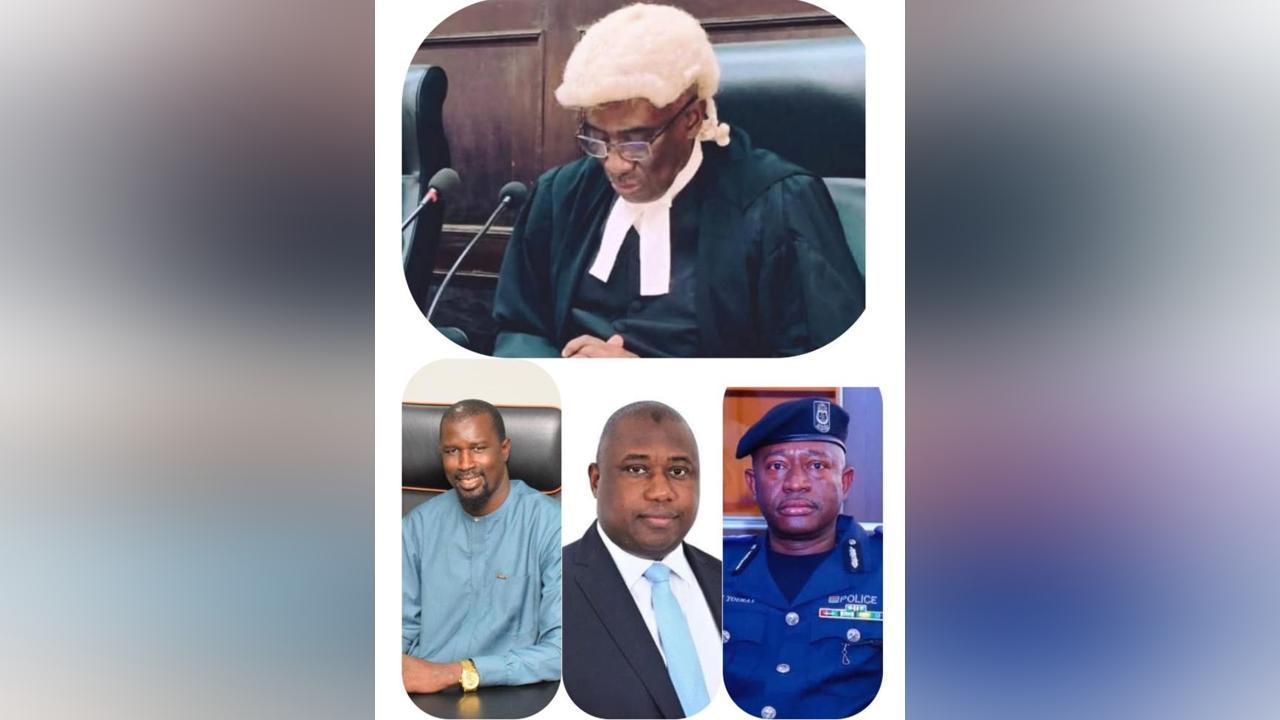Africa-Press – Gambia. The State Law Office has filed a statement of defence at the Supreme Court in response to the lawsuit brought by former Auditor General, Modou Ceesay, against the Attorney General (1st Defendant) and the Inspector General of Police (2nd Defendant).
The suit challenges the circumstances under which Mr. Ceesay ceased to hold office as Auditor General. The defence, filed on 20th October 2025, is supported by an affidavit sworn by Mod K. Ceesay, Chief of Staff and Minister for Presidential Affairs, who stated that he was duly authorised to depose the affidavit on behalf of the defendants.
In the affidavit, Mod K. Ceesay affirmed that the facts contained in paragraphs 1 to 34 of the Defendants’ Statement of Case were true to the best of his knowledge and belief. According to the defence, Mr. Ceesay was not removed from office but voluntarily relinquished his position as Auditor General upon accepting a ministerial appointment. The defendants categorically deny that the President ever removed him, noting that the grounds for removal of an Auditor General are strictly set out in the Constitution and relevant laws.
The State maintains that on 10th September 2025, Mr. Ceesay was appointed Minister of Trade, Industry, Regional Integration, and Employment, effective the same day. It claims that he accepted the appointment in discussions with the President and expressed appreciation for the opportunity, which the President extended based on his expertise in finance, investment, and public administration.
The defence further argues that Mr. Ceesay never declined the appointment in writing and that, following his acceptance, Cherno Amadou Sowe was appointed as the new Auditor General on the same date. The defendants state that Mr. Ceesay “ceased to be Auditor General on 10th September 2025” and was required to vacate the position accordingly, but continued to occupy the office thereafter, preventing his successor from assuming duties.
Addressing allegations of interference in the Auditor General’s work, the State denies any form of presidential interference, affirming that the President has consistently upheld a policy of non-interference with independent officeholders.
On the claim that the Auditor General was denied access to audit the National Food Security Processing and Marketing Company, the defence attributes the issue to banking confidentiality. It cites a complaint from a senior official of the company who alleged that Mr. Ceesay sought access to his personal bank account without authorisation, an act the State argues would contravene the Banking Act.
Regarding the alleged denial of access to the Gambia Revenue Authority’s taxpayer database, the defence contends that Mr. Ceesay’s request for the full database was considered a potential risk to the confidentiality of taxpayer information and was lawfully resisted under the Income and Value Added Tax Act.
The defendants also deny any forcible removal of Mr. Ceesay from office, stating that neither the President nor the Inspector General of Police ordered his eviction.
In their Memorandum of Issues submitted to the Supreme Court, the defendants have raised two key legal questions for determination:
Whether the Plaintiff was ever removed from office by the President; and
Whether, after his appointment as Minister and the subsequent appointment of Cherno Amadou Sowe as Auditor General, the Plaintiff could lawfully continue to hold the office of Auditor General.
The defence intends to rely on provisions of the 1997 Constitution—specifically Sections 158, 159, 160, and 169—alongside the National Audit Act, 2015, the Banking Act, and the Income and Value Added Tax Act to support its case.
Documents listed as exhibits include the letters of appointment and acceptance, an official State House media release, and a post from What’s On–Gambia.
For More News And Analysis About Gambia Follow Africa-Press






